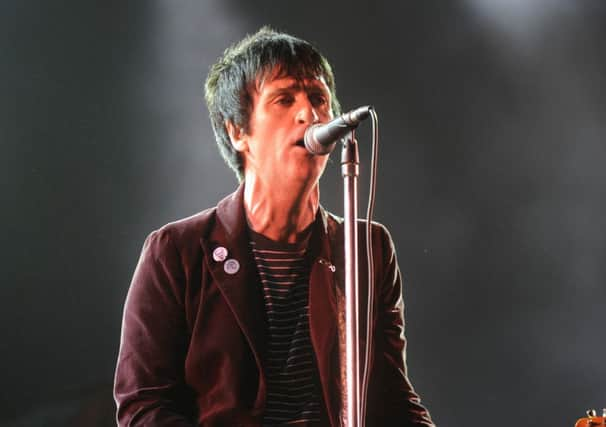Album review: Johnny Marr: Playland


JOHNNY MARR: PLAYLAND
NEW VOODOO
* * *
This guitar hero, meanwhile, seemed to diligently work through practically every other option before finally releasing his first album fully under his own name, last year’s The Messenger.
Between six-string for hire stints with Paul McCartney, Talking Heads, Pet Shop Boys and The Cribs among others, plus his membership of supergroups Electronic (with New Order’s Bernard Sumner) and Johnny Marr and The Healers (with drummer Zak Starkey and former Kula Shaker bassist Alonza Bevan), 25 years and more than 25 album credits preceded it. Marr’s first solo venture didn’t exactly reveal him to have been hiding supernatural vocal and lyrical prowess all that time, but it did prove there was no need to have been quite so shy. Now its successor, Playland, sees the Mancunian reaffirm his graceful state as godfather of British rock and progress further towards finding his own voice.
Advertisement
Hide AdNext to his legend as a guitarist, Marr’s skill as an all-round composer and arranger is less commonly heralded, but it’s chiefly this that makes an album wholly of his own making so striking to hear. This Tension frames a talent rooted not in virtuosity but in mastery of simple and effective parts – a strummed acoustic guitar, a sweet trademark jangling lead line, sweeping synth strings, a driving rhythm and voilà: a song as big as houses. The Trip, which has a chorus vaguely reminiscent to that of Wire’s Outdoor Miner, is a handsome indie anthem echoing Marr’s Cribs days.
His lyrics remain clunky, but he’s striving to say something meaningful. Discofied lead single Easy Money – which if you’re in any doubt what it’s about, features the word “money” 73 times – angrily decries greed, the same deadly sin which buried The Smiths, incidentally. As if to prove that Morrissey wasn’t the only well-read one in that partnership, the album’s title Playland is inspired by Dutch cultural theorist Johan Huizinga’s 1938 book Homo Ludens, and we find Marr elliptically toying with esoteric ideas throughout, such as in This Tension’s references to a “conceptual son with an intellectual gun protection”.
After apparently remaining reluctant for so long to risk paling as a frontman in comparison to his many prestigious collaborators, Marr is enjoying some well-earned pay-off for finally putting his money where his mouth is. Despite its shortcomings, Playland feels like a rare triumph in rock’n’roll terms: one of modesty over ego.